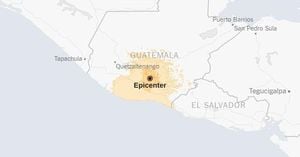Across Africa, governments are rapidly rolling out digital ID systems to improve service delivery, foster economic inclusion, and enhance security. From Kenya's Maisha Namba to Nigeria's National Identification Number (NIN), millions use these programs for healthcare, education, and finance. However, an estimated 500 million Africans still lack legal identification. The African Union (AU) has positioned digital identification as a key component of its Digital Transformation Strategy (2020–2030), aiming to provide a unique digital identity to every African by 2030.
These initiatives aim to unlock economic opportunities and enhance governance efficiency, including seamless border trade under the African Continental Free Trade Area (AfCFTA). Despite these promises, concerns over privacy, security, and exclusion are growing. Critics, including Privacy International and Access Now, have raised alarm over the risks posed by poorly regulated digital ID systems. They caution, “Without strong safeguards, Africa’s digital ID dream risks becoming a surveillance nightmare.” Data breaches and inadequate legal frameworks further raise questions about whether these programs empower citizens or expose them to new vulnerabilities.
Digital ID systems present significant opportunities for African nations, offering a pathway to greater financial inclusion, improved service delivery, and stronger governance. A key benefit is economic empowerment, with the United Nations Economic Commission for Africa (UNECA) projecting that effectively implementing digital ID systems could drive Africa’s GDP growth by 3 percent to 13 percent by 2030. These systems also enhance financial inclusion by enabling access to banking, credit, and formal markets.
Moreover, digital IDs enhance public service efficiency by streamlining the delivery of healthcare, education, and social protection programs. Citizens can access government services more easily, reducing bureaucratic hurdles and improving the accuracy of service provision. In Rwanda, over 98 percent of adults are registered in the national ID system, widely regarded as one of Africa’s strongest foundational ID systems. The World Bank highlights that robust digital ID systems not only improve economic participation but also reduce fraud in social welfare programs.
Rwanda's digital ID initiatives have enabled better targeting of social welfare programs and streamlined access to health services, particularly for marginalized populations. Under AfCFTA, digital IDs ease cross-border trade and labor mobility. They provide a secure and verifiable way for businesses and individuals to engage in commerce across the continent, reducing delays and enhancing trust in economic transactions. However, the success of digital IDs hinges on inclusivity, ensuring rural communities and refugees are not excluded.
One of the major risks is data security, with centralized databases becoming prime targets for cyberattacks and unauthorized access. Countries implementing digital ID programs, such as Nigeria and Kenya, have experienced data breaches, raising fears about how well governments can protect sensitive personal information. In addition to security concerns, there are fears of government surveillance and data misuse. Advocacy groups such as Access Now have raised alarms that digital ID systems could be used to monitor citizens, curbing dissent and infringing on fundamental rights.
Without clear and enforceable data protection policies, there is a risk that personal data collected for identification purposes could be exploited for political or commercial gain. Moreover, the lack of informed consent poses a significant challenge. As the European Centre for Development Policy Management (ECDPM) observes, “African governments have been developing biometric databases and digital ID systems mostly before establishing robust data governance frameworks such as data protection and cybersecurity laws.” As a result, many individuals enrolled in these systems may not fully understand how their data will be used or shared.
Public trust in digital ID faces hurdles. The African Digital Rights Network (ADRN) has conducted research indicating that citizens in several African countries have reservations about how their data is handled in digital ID systems. Concerns about privacy rights and potential surveillance have been documented, particularly regarding SIM card registrations linked to digital IDs. This underscores the need for robust legal safeguards to protect citizens’ data and build trust in digital identification initiatives.
Digital literacy is another critical barrier to the adoption of digital ID systems across Africa. Many citizens, particularly in rural and underserved communities, lack the necessary skills to effectively engage with digital platforms. Initiatives such as Safer Internet Day (SID), marked annually on February 11, help bridge this gap by promoting discussions on online privacy, cybersecurity, and responsible digital engagement. These efforts ensure that individuals understand their rights and responsibilities in the digital age.
A 2022 World Bank report highlights Africa’s low digital skills, with many countries scoring below the global average, and a lack of formal training in digital literacy. These gaps underscore the urgent need for targeted government interventions and public education initiatives to improve digital literacy and drive the successful adoption of digital ID systems. Additionally, accessibility issues disproportionately affect marginalized groups. The United Nations High Commissioner for Refugees (UNHCR) highlights the fact that forcibly displaced and stateless persons are frequently underrepresented or invisible in national data.
This lack of inclusion can hinder their access to essential services and legal recognition, underscoring the need for inclusive civil registration systems. Regulatory frameworks for digital IDs remain fragmented, with some countries having strong data laws while others lack clear policies on collection and storage. According to the International Telecommunication Union (ITU), less than half of African countries have comprehensive legal frameworks that align with global standards such as the General Data Protection Regulation (GDPR).
As Africa accelerates its digital transformation efforts, striking a balance between innovation and privacy is crucial. According to the AU, harmonizing digital ID frameworks across member states is essential to fostering economic growth while safeguarding personal data. African governments must enhance transparency, cybersecurity, and legal frameworks to build trust in digital ID adoption. To achieve this balance, countries should invest in capacity-building initiatives, implement clear regulatory frameworks, and enhance public awareness campaigns.
Collaboration among government, civil society, and the private sector is essential for creating an inclusive and secure digital ID system.






